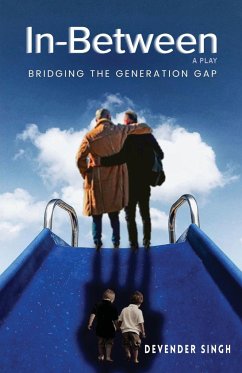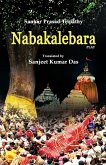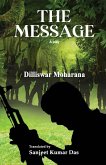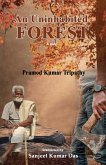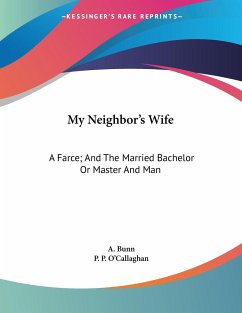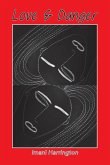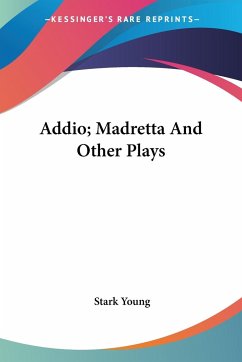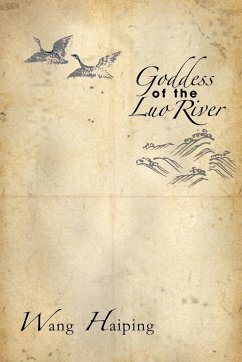'In-Between' is a story that unveils the inherent truth within every human being across different eras, a truth suppressed in the mental fabric of civilized societies. While individuals in any epoch may be considered modern within their temporal context, it is only the passage of time that categorizes them as traditionalists, conservatives, or unconventional. Drawing from the Indian knowledge tradition, the play aligns with the concept that, after completing the initial two stages of life, individuals enter an intermediate phase where they cannot revert to the past nor fully embrace the future. In contemporary times, this juncture typically manifests after the age of 40 or somewhere between the ages of 40 and 50.During this phase, a person finds himself in a unique situation - neither entirely old nor entirely young. Despite having youthful enthusiasm, arrogance, mischief, and numerous strenuous efforts, time comes on the way of life with many punctuation marks. While responsibilities take root in the mind, with its baggage, maturity begins to desire the transformation of baked, half-baked and unbaked emotions through the crucible of experience. It's a peculiar juncture where children evolve into young individuals, driven by their emerging interests, while middle-aged individuals find their interests deeply embedded in their minds, exerting control over their lives. This marks the transitional period, perhaps a phase that renders a person vulnerable even when physical strength persists. Individuals with jobs encounter heightened challenges. As one navigates through the complexities of life, a multitude of experiences surfaces, leading to an overwhelming workload that extends from the office into the home, blurring boundaries. This brings individuals to a crossroads where they neither fully embrace a domestic lifestyle nor remain solely dedicated to their professional roles. In this scenario, equilibrium becomes disrupted, sparking conflicts between spouses. Coping with such challenges demands a unique skill set that may not be possessed by everyone. Natural skill to deal with such situations are not found in everyone as nature distributes its gifts unevenly, and relying on fate for mercy is ultimately futile. Women face more profound challenges compared to men. Given the revered role of mothers across cultures, their focus tends to lean towards their children rather than their husbands. The existence of a generation gap among spouses and children leads to divergent ideologies. Within this dynamic, a woman, referred to as a mother, finds herself navigating conflicting loyalties. Struggling to decide between her children and husband, her heart remains with the former while her mind remains with the latter. Remarkably, she manages to maintain a more delicate balance than men. Despite a deeper affection for her children, she retains her commitment to her husband. Men can learn valuable lessons in this balancing act from women.This play delves into a crucial theme cantered around human values that get trampled between the destructive forces of false pride and ego. The negative influences of position-related arrogance, male-centric pride, and unchecked greed can degrade an individual to the point where they lose awareness of their responsibilities and disregard the rights of others. By the time the completely ruined individual realises and acknowledges the unfairness of their actions, the clock signals the end of their time.It is expected that this work effectively conveys the significance of the pure Indian philosophy encapsulated in Sarve Bhavantu Sukhinah and resonates with discerning readers.
Hinweis: Dieser Artikel kann nur an eine deutsche Lieferadresse ausgeliefert werden.
Hinweis: Dieser Artikel kann nur an eine deutsche Lieferadresse ausgeliefert werden.

